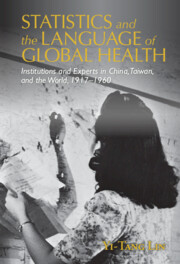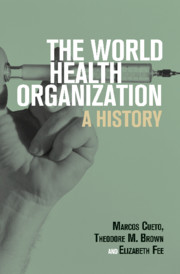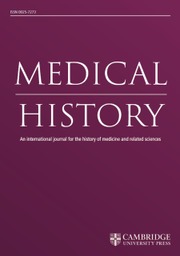Statistics and the Language of Global Health
Yi-Tang Lin presents the historical process by which statistics became the language of global health for local and international health organizations. Drawing on archival material from three continents, this study investigates efforts by public health schools, philanthropic foundations, and international organizations to turn numbers into an international language for public health. Lin shows how these initiatives produced an international network of public health experts who, across various socioeconomic and political contexts, opted for different strategies when it came to setting global standards and translating local realities into numbers. Focusing on China and Taiwan between 1917 and 1960, Lin examines the reception, adaptation, and appropriation of international health statistics. She presents the dynamic interplay between numbers, experts, and policy-making in international health organizations and administrations in China and Taiwan. This title is also available as Open Access.
- Provides a historical account of the complex making of the international health statistics system
- Discusses the growing importance of statistics in global health policy-making
- Will appeal to a range of scholars working on the history of medicine, global health and health humanities
- Available as Open Access
Reviews & endorsements
‘Yi-Tang Lin tells a most fascinating story on how crucial the networks of the experts of public health statistics were in China's close relationship with the predecessors of WHO, and how the lives and expertise of these Chinese statisticians were played out in the ROC and the PRC in the early WHO days during the Cold War.' Tomoko Akami, The Australian National University
‘Thanks to Lin we know about how a new vocabulary, intertwining numerical data, indexes and political values, promoted by scholars, health workers and policy makers became essential for the validation of Global Health during the 20th century. A remarkable contribution to Global Health studies in China and beyond, past and present.' Marcos Cueto, Fiocruz
‘Today, statistics and the language of numbers dominates global health thinking and practice. Yi-Tang Lin's ground-breaking study provides a much-needed history of how this came to be. Wide ranging, well researched and clearly written, Lin's book traces the emergence of statistics in global health over the course of the 20th century.' Randall Packard, John Hopkins University
‘This impressive book offers both a history of the adoption of statistics by global health administrators and an investigation of how that adoption shaped and was shaped by international health professionals’ interventions in the Chinese-speaking world. … The book succeeds in bringing together the history of statistics with the history of international health, and is essential reading for anyone interested in the history of global health.’ Mary Augusta Brazelton, The Social History of Medicine
‘Lin’s scholarship is superb throughout this book. Employing a wealth of archival material from three continents, she also fares well against the unenviable task of bringing the subject of statistics to life. … the remarkable richness of Lin’s material and the clarity of her presentation provide the historical foundations for the further theorization of statistics in medicine. This book deserves to be read widely by STS and global health scholars, anthropologists, and historians of all stripes.’ John Nott, East Asian Science, Technology and Society: An International Journal
Product details
May 2025Paperback
9781108994057
276 pages
229 × 152 × 15 mm
0.406kg
Available
Table of Contents
- Introduction
- 1. The call for a language of public health: Philanthropic foundations, bacteriologists, and health administrators
- 2. The language and dialect of health science: Public health schools and their statistical practices
- 3. The language of health administrations: The League of Nations Epidemiological Intelligence Service
- 4. The language of policy-making: Research and advocacy through health demonstrations
- 5. Popularization at a global scale: The WHO and the postwar health statistics reporting system
- 6. The art of rhetoric: Statistical standards at work, from fieldwork to world policy-making
- 7. Another way of speaking? Public health statistics in the People's Republic of China
- Conclusion: Numbers, experts, and policy-making.







